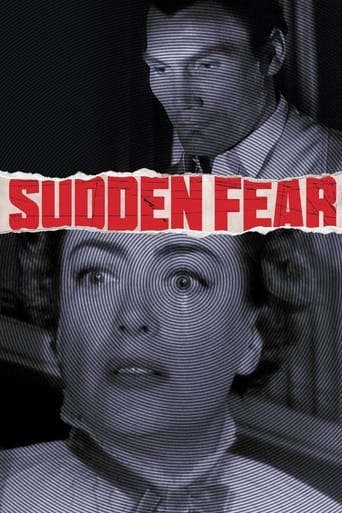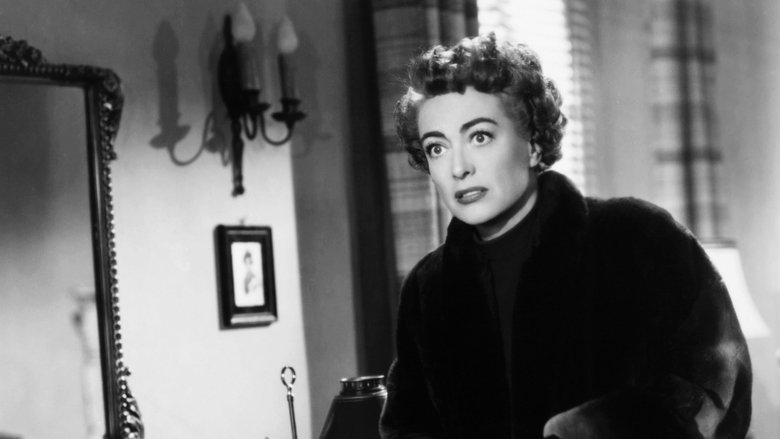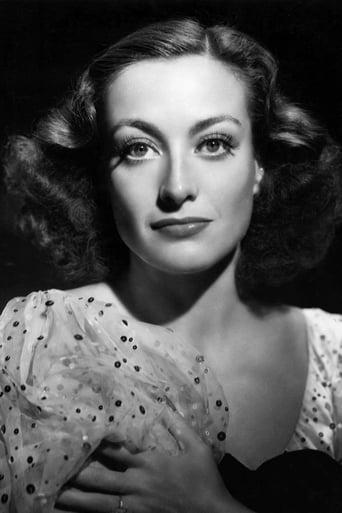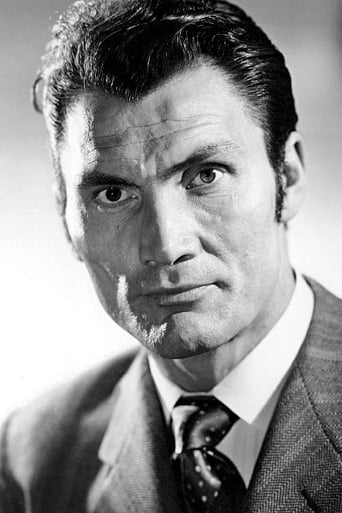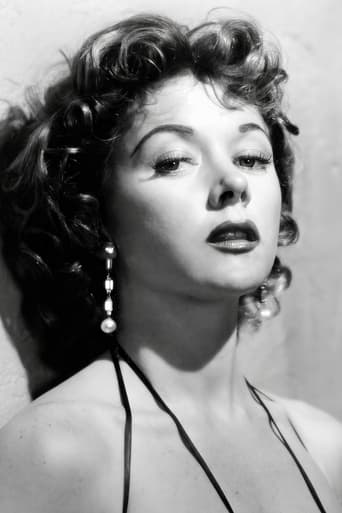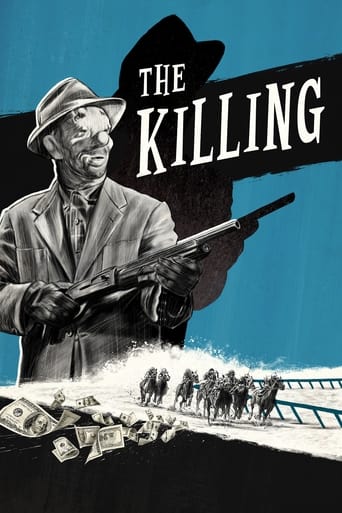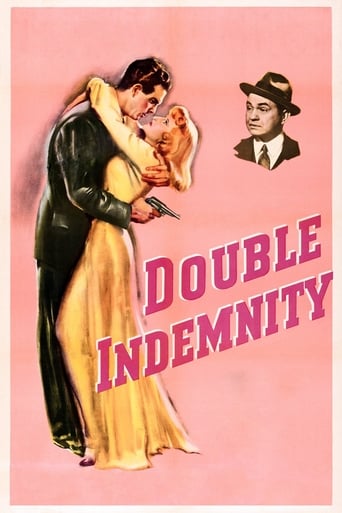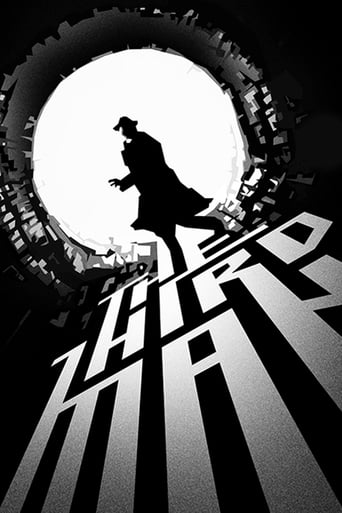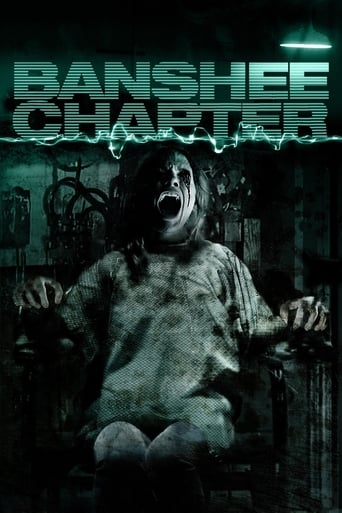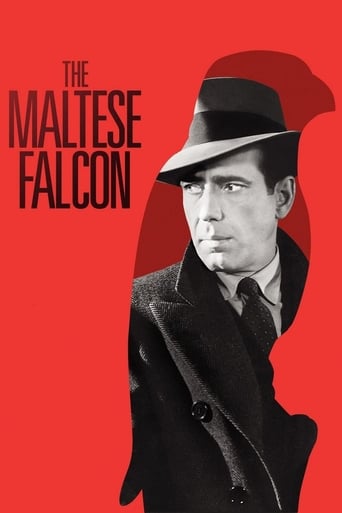Sudden Fear (1952)
Actor Lester Blaine has all but landed the lead in Myra Hudson's new play when Myra vetoes him because, to her, he doesn't look like a romantic leading man. On a train from New York to San Francisco, Blaine sets out to prove Myra wrong...by romancing her. Is he sincere, or does he have a dark ulterior motive?
Watch Trailer
Cast


Similar titles
Reviews
One of my all time favorites.
Must See Movie...
At first rather annoying in its heavy emphasis on reenactments, this movie ultimately proves fascinating, simply because the complicated, highly dramatic tale it tells still almost defies belief.
I enjoyed watching this film and would recommend other to give it a try , (as I am) but this movie, although enjoyable to watch due to the better than average acting fails to add anything new to its storyline that is all too familiar to these types of movies.
Predating Hitchcocks Vertigo by 6 Years, this movie is an RKO production with a very good cast that has some scenes which are choppy. In a way, there are several irony's here which are legend. Supposed Joan Crawford wanted Clark Gable for Jack Palances role. Gable claimed he was too old for this role. David Miller, who directed this is said to have convinced Crawford to cast Palance. If this is so, the first scene is a reflection of real life where Crawford is not happy with Palance rehearsing her new play and fires him. Legend has it that Crawford then becomes interested (in real life) with Palance but in real life he was having an affair with co- star Gloria Grahame. If this is true, it might be why Gloria divorced in 1952, but her next spouse was not Palance. (Grahame would have 4 spouses in real life.)Early on the film has some things that will remind the viewer of Hitchcock. The use of a stair case early on and then the film moving from the east, through Chicago by train and then relocating for most of the film to San Francisco. The golden gate bridge and the hilly streets of the Golden Gate city are featured throughout the film from this point.At first, it seems Palances character is just out for revenge for being fired. Then it gets more complicated. Edna Sherry who wrote the novel only has one other film to her credit as a writer, 1929 Thru Different Eyes which has little information about it other than the cast on IMDb featuring Warner Baxter.The atmosphere in Sudden Fear is very much like a film noir, the glorious dark black and white which is nothing like Hitchcocks glorious color Vertigo, but you have to remember this is an independent production company releasing through RKO who in 1952 was nearing it's end and of being sold to Lucy and Desi. The film is ambitious and clever but the budget here must have been quite tight which might account for some choppy scenes.A viewer who has watched the TV series Mannix will recognize a young Mike Connors in this in a supporting role as a love interest for Gloria Grahame along with Palance and he is also a friend of Crawfords character which makes for some lively scripting.There is a well staged chase sequence in the latter part of the film. Overall a film that could have been better but falls a little short of classic noir, and way short of Hitchcock's Vertigo though the suspense of Crawfords character can pull the viewer in along with the plot and counter-plot aspects of the main characters.This recently premiered on Turner Classic Movies.
In the old days of Hollywood, glamorous leading ladies were finished getting starring roles around age 30. Many times they were reduced to horror films, badly produced B movies, and television. If they want to strip their glamour and gain weight, they could do character roles. However, Joan Crawford, whose contract was terminated by MGM at the age of 35, continued to make good films throughout the '40s and into the early '50s. One of them was this one, Sudden Fear, for which she served as executive producer. In that capacity, she chose the screenwriter, the actors, the director, the composer, the cinematographer - and they were all top drawer.The story concerns Myra Hudson, a woman born into a wealthy family who became a successful playwright. She marries an actor, Lester Blaine (Jack Palance) and then realizes that he and his mistress (Gloria Grahame) are plotting to kill her.Crawford registers the bliss of new love, the pain of betrayal, hysteria, and then the steel to pull herself together and take action. Really it is one of her best roles. This is a woman who knew how to play to her strengths.Sudden Fear is exciting, suspenseful, atmospheric, and highly entertaining. Of course, if I saw Jack Palance and Gloria Grahame together, I'd know something was up. The first choices for the Lester role were Gable and Marlon Brando. Palance is excellent as a masculine, romantic man hiding a violent and psychopathic personality. As his flirtatious mistress Irene, Grahame is perfect.While there is no actual sex, there is a lot of raw desire and innuendo in this film.The end of the film has very little dialogue, and you'll be glued to the screen.It's sad to see once great stars like Lana Turner, Merle Oberon, and others reduced to poor circumstances in film, and sadder still that they knew that once they were at the top of the heap. Crawford at least fought the good fight and in Sudden Fear proved that she was still a force.
A wealthy playwright is swept off her feet by an audacious actor who she'd just rejected for the lead role in one of her Broadway plays, but something nasty awaits at the end of their honeymoon.Full on melodrama noir that really cranks through the plot gears, and repeatedly clips the audience round the ear to make sure we're paying attention. It would have gone smoother if the director had had a bit more faith in us. The conspiracy is revealed straight away, and the motivation doesn't really convince. Plus the crucial scene in the study wobbles slightly, as we debate with ourselves whether this is plausible, but I think it steadies itself - probably down to the actress - and regains its stride. And The incident at Fire Island is left hanging, as well as the poison and the gun - symptoms of an underdeveloped plot.Otherwise it's an enjoyable noir, with good performances and photography, a strong sense of irony and a twist in the end (though still a bit self-satisfied). The main pleasure for me was the actress playing Irene, with her insolent pout and sly eyes - pity she didn't have more close ups.Music is standard orchestration, and not intrusive in the way '50s Hollywood can be.Overall - good entertainment, and a slice of post-war America, where the desperation of the vice ridden poor threatens well earned privilege - no commies here, no sir! But still a 6.
Myra Hudson, in "Sudden Fear," has a self-directed life: she's a successful playwright, an heiress in charge of a large fortune, and the center of an artsy San Francisco social circle. She's an astute professional, sharp, intense, dignified, and absorbed in her career/life. However...god forbid, she ain't married.So a second life plot opens up for her when she encounters Lester Blaine--the actor she has dismissed for not being "a romantic leading man" for her most recent smash Broadway hit. As a woman of around 40, she doesn't possess the social or personal props to confidently slip into or deny romance or marriage, and most certainly is typecast as an old maid, if not by all the world, than at least by the calculating mind of Lester Blaine, who must rely on her desperation to wield his narrative.For when Blaine enters her train (to San Francisco) he starts a train of events, none of which will be in her favor. His "play," which might be called "Halfway to Hell" displaces her "Halfway to Heaven." It will understandably seem to Myra, and to a lesser extent the viewer, as a light romantic drama. For despite his raw physicality, his shifty demeanor, Lester manages to appear mild in manner, polite, and poised past any vengeance for what appeared to be a massive ego slight in his bolting stage exit. He's also surprisingly literate--and rather convincingly romantic.At least enough to easily win Myra over. For he represents to her a lucky chance at a long missed passion. Her receptivity is so apparent that it even worries the train porter who helps the blissful couple out with Blaine's little confidence game. And Myra's descent to type is soon furthered by her quickened sympathy for Lester's life story (he's the son of a coal miner--a war vet who played sad Lenny in "Of Mice and Men")--his standard expectations soon becoming hers.She glides along, accommodating herself to his charm, his fun sporty ways; introduces him to her fancy social set, and even arranges a party for him. Which he uses to accelerate his marriage trap, by staging, through his absence from this devotedly prepared celebration, his immense unworthiness in Myra's life. "I am no match for you." "I have no proper place in your life," he tearfully exclaims, baggage in hand, looking down on her from atop his staircase, in his most self-pitying display.Which Myra is not only duped by, but which calls out her deepest passions: "Without you, I have NOTHING." As in no career, no success, no life; as in love super-ceding her whole existence. His charade has paid off, for Myra is flat out susceptible even to so obviously a phony, an inapt, a suitor.No wonder Lester's certainty and suavity. No wonder he has no need to confide in her, inquire into her career, nor even respect her professional's authority. One irony is that the "good actor" doesn't have to be a very good actor at all in his own 'play.' Another is that a well-established upper class arts professional cannot begin to opine on a lower class fledgling actor. So it is, that Blaine can disarm her mind, her work, her name, her money, her independence all by a simple, casual plot.But the powerful obloquy of the single state combined with Lester's male prerogatives, are not solely responsible for Myra's capitulation. Because her own social power, while it may not affect Blaine much, can work against her. She senses herself in charge despite all her accommodations to him. She is also too confident to question her take on him, even when it's clear that her lawyer, friends, and even Irene, Lenny's ex, do grasp his intentions. Indeed fame can offer a bit too much hubris, as in Myra quoting Nietzsche's "live dangerously" to spark Lester to action. To which he counters: "He's dead." But thanks to the twists and turns of the suspense portion of "Sudden Fear," we soon learn that Myra's identity, as thin as it may seem under the pressure of romance, is not squelched. For Lester's demonic play/plot begins to unravel, thanks to Myra's (the writer) Dictaphone machine. And, if with too many tortuous steps, she does begin to exhort her previous authority.In the end, she grasps that her courage for revenge, is a means and not an end (she cannot obliterate Blaine or herself) in confronting and recapturing her abandoned identity. Which in the film's final moments: "It's Irene, STOP!" is even amplified through her powerful desire to save the sinning femme fatale--another typecast woman, one who is being mistaken for herself--from her own intended death sentence. She can't save this unknown sister, but she now purposely strides through the deserted, sinister street, alone, but a bold author once again.

